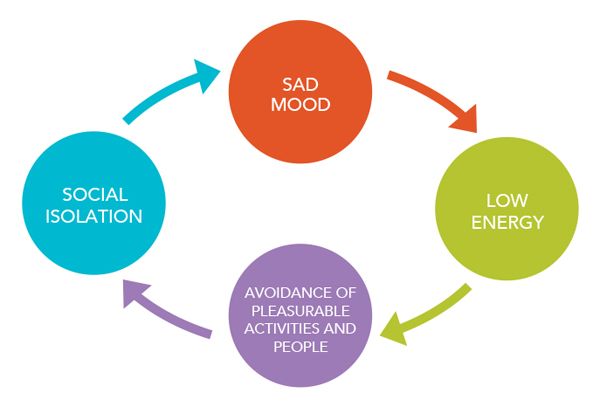Follow a plan, not a feeling: Finding a way out of low mood.

Participating in brain injury research can improve our daily lives. Not just in the longterm, but here and now. This was my experience after struggling with a low mood.
Even before the pandemic, most brain injury survivors struggle with depression and a sense of loss . It is understandable to be feeling low given the weeks of national lockdown, but what can we do to keep ourselves going?
Participation brings a sense of purpose
There are many articles around at the moment with advice on how to maintain good mental health. One tip is to find something which gives you a sense of purpose. That can be a little difficult in the middle of a lockdown, but there are options available. Late last year, Twitter pointed me towards a study into low mood following ABI: the MAPLES study.
Mood. Activity. Participation. Leisure. Engagement. Satisfaction.
The study was run by the MRC Cognition and Brain Sciences Unit at Cambridge University. A key goal in the study was to give participants ‘tools to help increase engagement in activities you find meaningful or enjoyable’. At the same time, the team were looking at the difference between meeting as a group to plan individual activities versus meeting to participate in a group activity.
The study had started before the pandemic, and was adapted to meet the new restrictions. I was asked to commit to a 90-minute meeting conducted via video link once a week for two months.
How activity affects mood
In the first week, Introduction and Mood Monitoring, we learned about the links between activity and mood in the behavioural activation cycle. This demonstrates that social isolation can lead to a low mood, which can reduce energy levels meaning we avoid enjoyable activities, which results in further social isolation.
The vicious cycle

It is easy to feel trapped in an ongoing cycle of low mood. But the good news is that a break in one part of the cycle can lead to improvements elsewhere in the chain.
This is known as behavioural activation and means that planning for or doing an enjoyable activity, such as arranging to call a friend for a chat, can help us to feel less alone. This improvement in mood which gives us more energy which helps us to plan the next enjoyable activity. I’ve noticed this myself after a walk, or workout, I feel lighter and ready to tackle new activities.
The motivation has come after an activity.
However, even with the promise of a better feeling ahead, it can be difficult to drag yourself into an activity when in a low mood. This is where the research meetings helped me.
Helping researchers helps you
There were several activity and behavioural tools introduced and practised across the eight-week study. Each tool worked in a slightly different way, and each of the participants in my group had their favourites. The main message for me was:
‘Follow a plan, not a feeling.’ This mantra works in several ways:
- Do something. Sitting around and waiting for your mood to improve rarely works. You need to do something about it. In difficult cases that may mean talking to a counsellor or your GP.
- A plan makes the decision for you. You have talked yourself into doing something, what should that be? If you have a plan, this decision is already sorted for you. It might be time to call a friend, or go for your walk, or settle into the next episode. If you don’t have a plan, then it is time to make one!
- The next step is easier. Once you have done something, you will usually have a bit more energy to try doing something else. As noted above, the motivation can come after the activity.
Looking forward
My participation in the research project left me with a lifted mood, and with tools to help me look after my mental health. This research study is now being written up, and I look forward to the final paper with a warm feeling of having helped another person.
Please consider helping researchers too:
- The MRC Cognition and Brain Sciences Unit have other studies which need volunteers now.
- The National Institute for Health Research (NIHR) has information on how to take part in research across the UK.
- The NHS website has information on clinical trials and website offering them across the UK.

